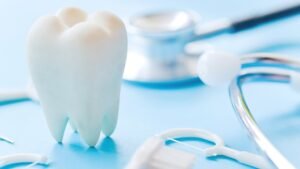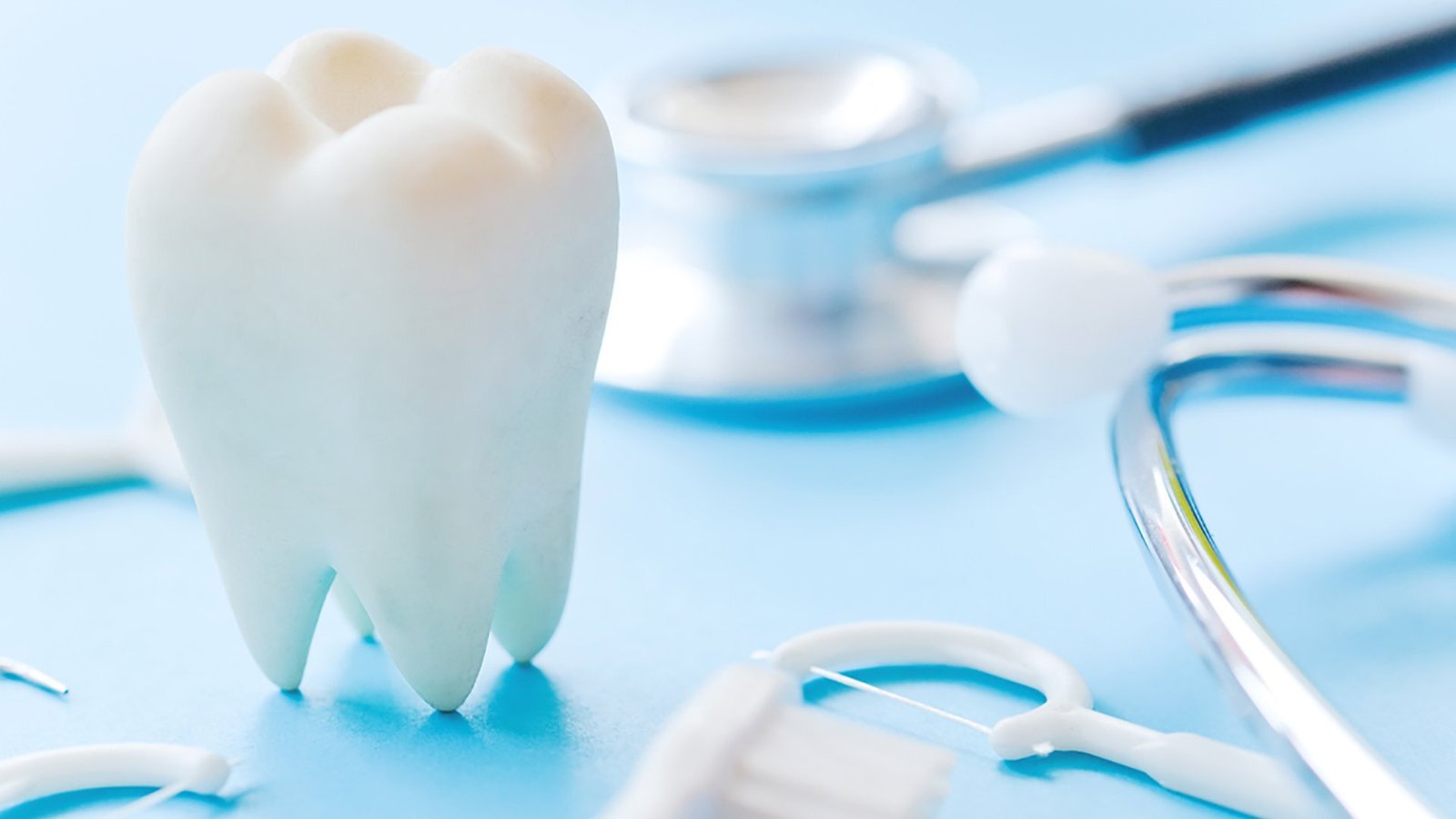With the evolution of the dental treatment process, dental clinics have the burden of delivering faster, safer, and more comfortable treatments. Expectations have long been transformed, and patients expect precision-based, painless care. Similarly, dentists need tools that help them provide something to meet the demand. This is where dental laser equipment comes in and shines very brightly. This is a technological milestone that allows dentists to perform multiple procedures with more control and comfort for the patient. As a result, companies like Aidite are helping dental professionals upgrade their clinics with advanced solutions that improve efficiency and treatment outcomes.

What is Dental Laser Equipment?
Dental laser equipment is any device that uses beams of light on hard and soft tissues in the mouth for treatment. The lasers vary in their spectral emission, power, and delivery systems associated with them, which makes them ideal for various clinical applications. Today, more and more practices utilize dental laser machines that can take care of everything from cavity preparations and gum surgeries to cosmetic enhancements and sterilizations.
Types of Dental Laser Equipment
Different types of dental laser devices are available, specialized for addressing particular needs. Here are the most common types and a brief overview of their applications:
1. Hard Tissue Lasers
Hard tissue lasers are sophisticated dental laser devices that produce wavelengths that are readily absorbed by the high hydroxyapatite content in enamel and dentin. Modern laser dentistry devices allow great precision during prophylactic cavity treatments.
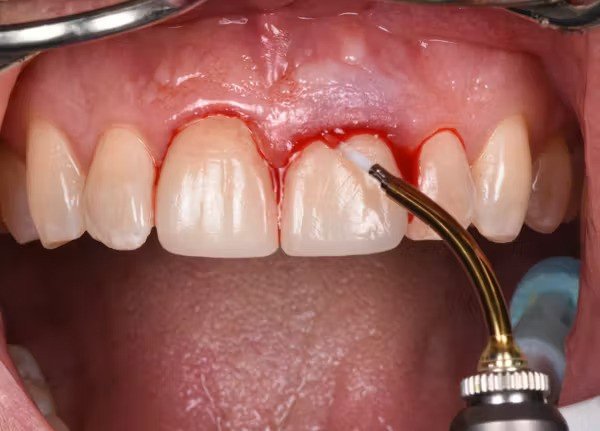
Where They Are Used:
- Cavity preparation and caries removal using dental laser equipment
- Some enamel was etched before composite bonding
- Access and decontamination of the root canal
Pros:
- Enhances precision for minimally invasive treatments
- Minimizes patient discomfort, enables procedures without anesthesia
- An important part of many of the laser dentistry protocols
Cons:
- Only goes to deeper areas and works on hard tissue, does not provide soft tissue work
- More expensive for clinics indicating their interest in dental laser devices.
Hard tissue dental laser machines are perfect for minimally invasive operative procedures and are often found in high-tech restorative clinics practicing advanced laser dentistry.
2. Soft Tissue Lasers
Soft tissue lasers actually have their own identification under the wider umbrella of dental laser machines, focusing the laser light on both water and hemoglobin that is naturally present in most soft tissue. They are important aspects of laser dentistry equipment surgical and periodontal applications.
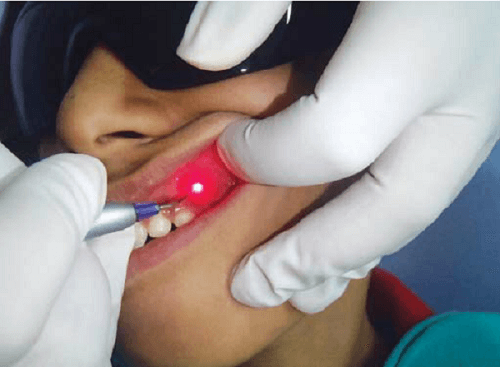
Where They Are Used:
- Laser dentistry equipment used for gingivectomy and crown lengthening procedures
- Aesthetic and pediatric dentistry frenectomy and lesion treatment
- Periodontal pocket decontamination using state-of-the-art dental laser devices
Pros:
- Encourages the formation of clots and decreases blood loss
- It enables accurate incisions, sterilization, and improved recovery.
- A key component of laser dentistry treatment safety and comfort
Cons:
- Not applicable for enamel or dentin
- Some deep tissue procedures may need several passes or methods
These lasers find common applications in laser dentistry equipment setups for cosmetic and periodontal treatments, providing predictable outcomes with high levels of patient satisfaction.
3. Diode Lasers
Diode lasers are compact, versatile dental laser devices commonly used for soft tissue applications in laser dentistry. They are cost-effective and portable, making them excellent dental laser machines for general practice.

Where They Are Used:
- Periodontal therapy including bacterial decontamination using dental laser equipment
- Gingival shaping for aesthetic and prosthetic preparation
- Laser dentistry equipment support in aid of whitening procedures
Pros:
- A budget-friendly way to get dental laser equipment into clinics.
- Lightweight and easy to move
- Simple soft tissue solutions that don’t require much setting up
Cons:
- Not ideal for making cuts in hard tissue
- Less precision than high-end dental laser machines
However, diode dental laser devices are widely used in general practice in settings where laser dentistry solutions are needed but the budget is limited.
4. CO2 Lasers
CO2 lasers are high-powered, water-absorbing dental laser devices that emit energy wavelengths. They provide the most cutting efficiency for soft tissue surgeries and high-performance laser dentistry.
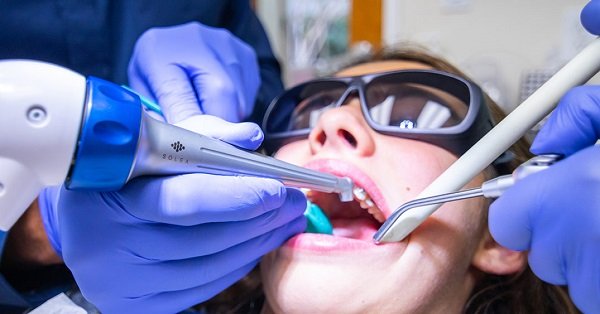
Where They Are Used:
- Tissue sampling and tumor removal
- Soft tissue related advanced oral surgery
- Disinfecting operation fields with dental laser devices
Pros:
- Provides seamless and bloodless cuts
- Sterilizes while cutting, reducing infection risk
- Preferred in complex laser dentistry procedures
Cons:
- One of the most pricey kinds of dental laser equipment
- This is quite a prickly device and needs training to ensure it is handled with care
CO2-based dental laser devices made this range best suitable for specialists & oral surgeons dealing with maximum precision.
Dental laser machines are of multiple types, each serving a clinical purpose. The best choice for you typically depends on what your practice does most often.
How to Select the Best Dental Laser Equipment
There are many dental laser devices available today, and picking the perfect one can be quite difficult. Below are expert considerations to help you choose:
1. Define Your Clinical Needs
Begin by assessing the range of procedures you frequently perform. Are you strict on periodontal, or are you looking for a tooth that does both hard and soft tissue? The dental laser machine you need to buy will depend on the specifications determined by your clinical requirements.
2. Power and Wavelength Matched to Application
A dental laser device is characterized by its wavelength, which defines how the tissues absorb energy as follows:
- Hydroxyapatite absorbs much energy in hard tissue lasers.
- Soft tissue lasers target hemoglobin and water.
The right wavelength is chosen for an effective and safe treatment.
3. Think about user training and support
High-tech equipment without training is misused and underused. In the meantime, Aidite continues its support for practitioners through resources and education that engage and properly inform users of your technology, such as laser dentistry equipment.
4. Balance Budget with Utility
Although it may be easy to go cheap, you should also consider long-term performance, reliability, and maintenance costs. Additionally, selecting a vendor with a track record of providing professional dentistry solutions can be just as crucial as the equipment itself.
5. Portability and Integration
Do you want a stationary unit or a mobile dental laser machine? Less high-tech, easy-to-relocate, and lightweight mobile solutions may suit smaller clinics.
6. Review for Certification and Regulatory Compliance
Clinical safety is guaranteed and should be FDA-approved product or CE-certified. These certifications indicate comprehensive quality testing and adherence to international standards.
Frequently Asked Questions
Q1. What are the uses of dental laser devices?
The dental laser equipment is utilized for both soft and hard tissue treatments, including cavity prep, gum surgery, whitening, oral lesion removal, and the treatment of periodontal disease.
Q2. Is laser dentistry safe for all patients?
It is still a comfortable and minimally invasive procedure provided by surgical dentists, thus suitable for most patients with less post-op pain and speedy recovery. Therefore, laser dentistry is said to be safe.
Q3. Why don’t more dentists use lasers?
Although laser dentistry equipment has been shown to be an effective and beneficial improvement for patient care and comfort, many dentists remain hesitant to embrace this technology because of high costs, limited insurance coverage, and the required special training.
Final Thoughts
Dental laser equipment has transformed the practice of dentistry, and modern clinics can no longer afford to overlook its benefits. It speeds up treatment, increases comfort, and results in better outcomes for several types of dental procedures. No matter if you operate a solo practice or an expansive multi-chair clinic, the right dental laser machine could integrate seamlessly within your day-to-day. Being a professional and trusted dental technology provider, Aidite always supports professionals with various types of dental solutions that are customized for clinical purposes.


